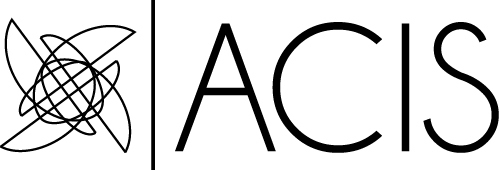
"History, Stephen said," wrote James Joyce in Ulysses, "is a nightmare from which I am trying to awake." Scholars of Irish literature hopefully have taken a less critical perspective on history than Joyce's Dedalus; however, historians of Ireland have remarked on the literary complexion that the American Conference for Irish Studies and the Canadian Association for Irish Studies have acquired. Ironically, the American Committee for Irish Studies, as the group was known at its official inception in 1961, was established by two historians, Emmet Larkin and Lawrence J. McCaffrey, who envisaged a wider forum for the nascent field of Irish studies. Nonetheless, ACIS/CAIS sessions on Irish or comparative literature have come to outnumber those on history at both the regional and national levels. This year's meeting proved to be no exception: of 132 panels, nearly fifty (almost forty percent) dealt with literature, while thirty-five (over twenty-five percent) covered historical topics. Sessions entitled "Parallax Visions" incorporated papers from both disciplines, while other areas of scholarly inquiry included language, music, education, art, ecology, identity, and the peace process in Northern Ireland. Whatever interdisciplinary trends have emerged, papers on Irish history were strongly represented at the 2014 ACIS/CAIS UCD meeting.
Amongst the historians, two themes, at times in dialogue with each other, emerged: empire and the press. In terms of the British Empire, Ireland's participation in the colonial project was not marginal, but central. Nationalists, of course, found overseas commonalities in their opposition to British rule. Irish practitioners of empire, however, were also to be found, at home and abroad, as landlords, soldiers, policemen, missionaries, and civil servants. Papers on the subject adroitly considered the question of what it meant to be Irish with the context of empire in terms of both personnel and ideas. As for journalism, talks centered on the role of the Irish press not only as reporters, but also as creators, of news, whose words were used by nationalists as an indictment of empire. The fire of Irish politics was stoked by investigative reporters such as William O'Brien of the Freeman's Journal, who informed a politicized readership with a new style of journalism that outraged and galvanized public opinion.
By no means were historical topics limited to these two themes; other excellent papers addressed subjects as diverse as medieval Ireland, Young Ireland, the Famine, Irish labor, Ernie O'Malley, and Irish America, to name a few. Still others provided interesting comparisons between Ireland and such disparate places as Savannah, Maine, Taiwan, Serbia, and Finland. The three plenary speakers, Declan Kiberd, Kevin Kenny, and Eugenio Biagini, all contained historical perspectives in their talks. Overall, with historical inquiry as one important component, the Dublin conference constituted a resounding success in providing scholars with an interdisciplinary approach to all fields Irish.
